What Does Social Justice Taste Like?
An inside look at how food can help heal our communities.
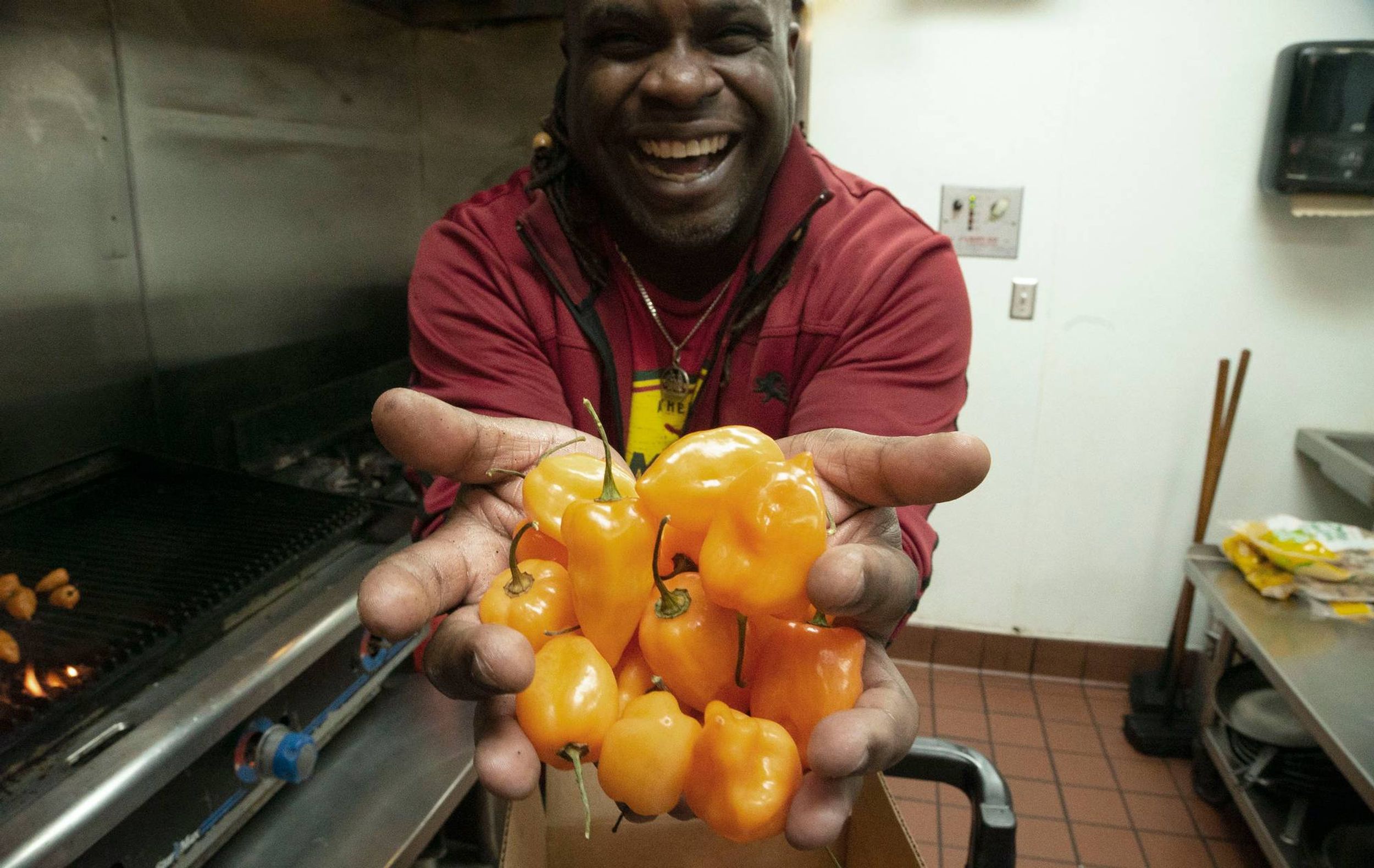
With picnic tables lining the sidewalk and dancehall music floating into the street, the front of Pimento Jamaican Kitchen and Rum Bar is open, and the vibe greets patrons like the warmth of a friend's cookout. But tucked away in the rear of the restaurant? That's where the real comfort is developed. Chicken, pork and goat are braised to perfection in baths of ingredients that are staples of Jamaican cooking, like scotch bonnet peppers, pimento and all-spice berries.
Hundreds of scotch bonnets are charred black on the grill — the beginnings of a sauce that will tickle your throat with a kick. Gallons of an aromatic goat curry bubble away nearby, getting thicker with each passing hour as the meat tenderizes and melts off of the bone and into the stew.
"To just be in the kitchen is to be in one's garden, creating, crafting, the artistry of it all comes together in a way that is intangible, yet very tangible — because there is nothing more tangible than how we feel in our bodies," says Tomme Beevas, chef and owner of Pimento Jamaican Kitchen.
This is just one of the reasons why Beevas cooks. But over the last year, Beevas has felt a deep connection to the healing powers of food, bringing comfort to himself and his community. And that idea of mending through food is rooted in his family traditions.
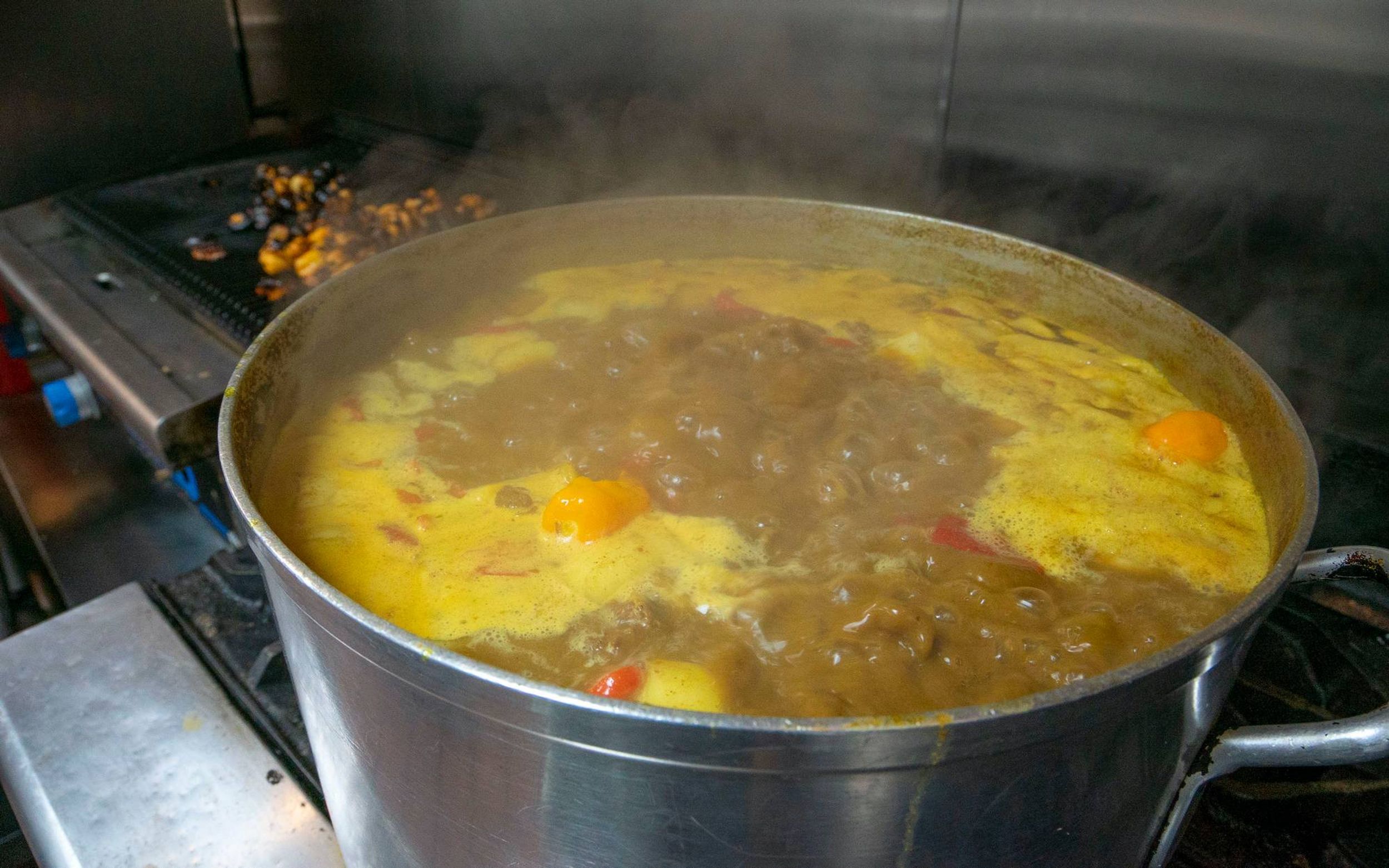
"My grandmother says, 'Food is glory.' There is nothing like a good bit of food to heal a soul," Beevas says. "[She] would use food to heal a community."
Beevas recalls that when someone passed away in Kingston, Jamaica, where he grew up, his grandmother would make the very curry now simmering in the corner. Someone would donate a 50-pound bag of rice and another would donate a goat. The community would celebrate life through food.
From the kitchen to the community
Last May, when George Floyd was murdered by a Minneapolis police officer, Beevas used the lessons he learned from his grandmother about community healing. He had a conversation with his team about what the community truly needed at that time. In addition to providing a safe space for protestors, his employees stressed the pressing need for sustenance because of the neighborhood food desert.
"That's how Pimento Relief Services was created — because of them understanding what was going on and Pimento living its values."
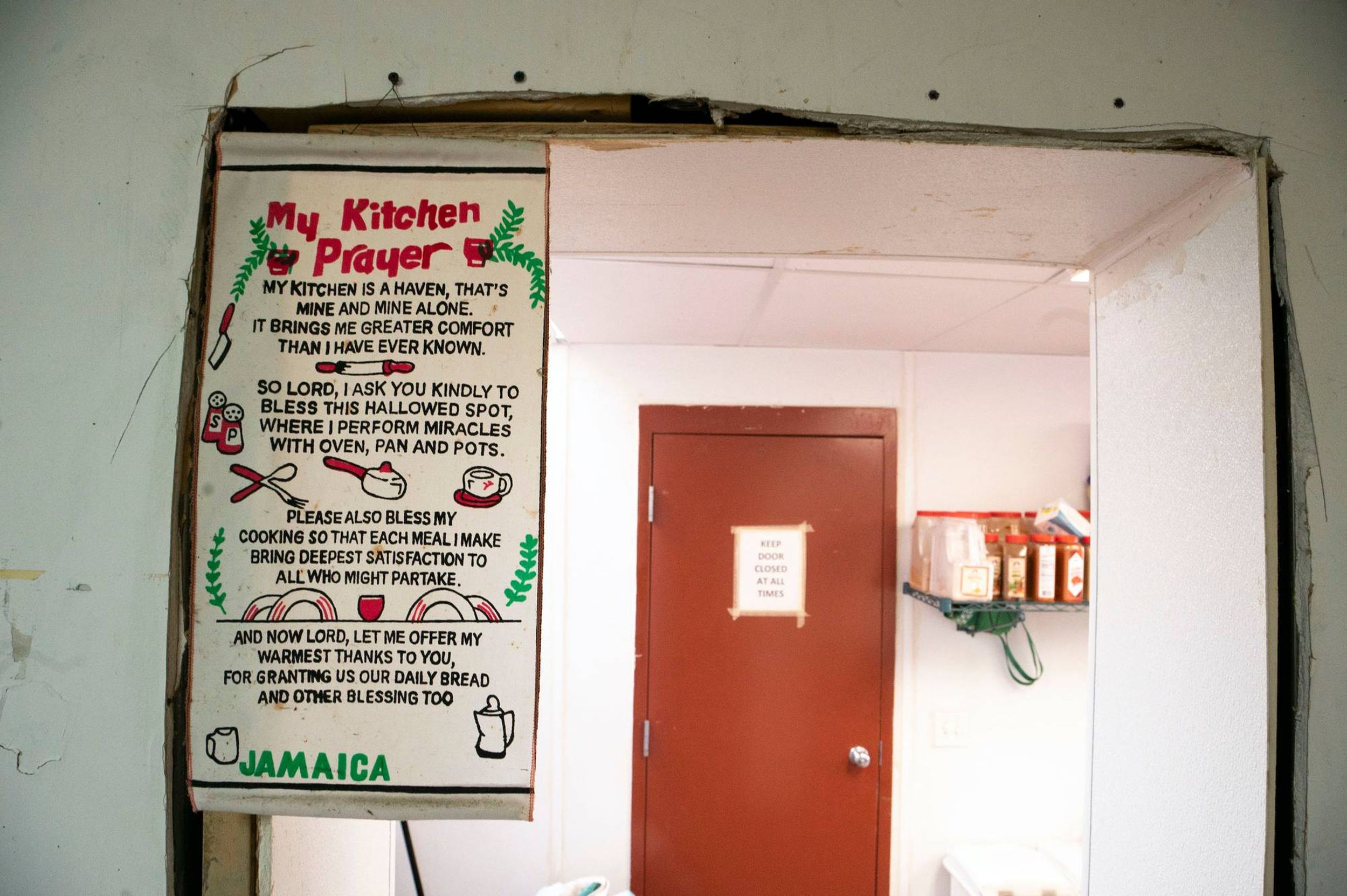
And when Daunte Wright was killed, Pimento Relief Services (PRS) kicked into gear again, joining other organizations at Brooklyn Center High School to distribute groceries and vaccines to thousands of families over the course of 11 days.
"What would it be like if other businesses, or the corporate sector in general, also took the time to understand what their neighbors are saying or their customers are saying or their employees are saying," Beevas wonders.
Beevas has created a strong relationship with his neighbors. He says he can't stop because he enjoys feeding and providing for the community, and the community has reciprocated by showing up for him and Pimento, as well.
Last summer, there was chatter on social media that white supremacists would come in the night to destroy his business. Instead, a supportive community sprang into action.
"Two hundred and fifty people showed up in the middle of the night to protect what was theirs," Beevas says. "That's how economies should work, right? The people show up to buy your product, you show up to reinvest in your people, so therefore your people can come back and always be able to sustainably afford your product."
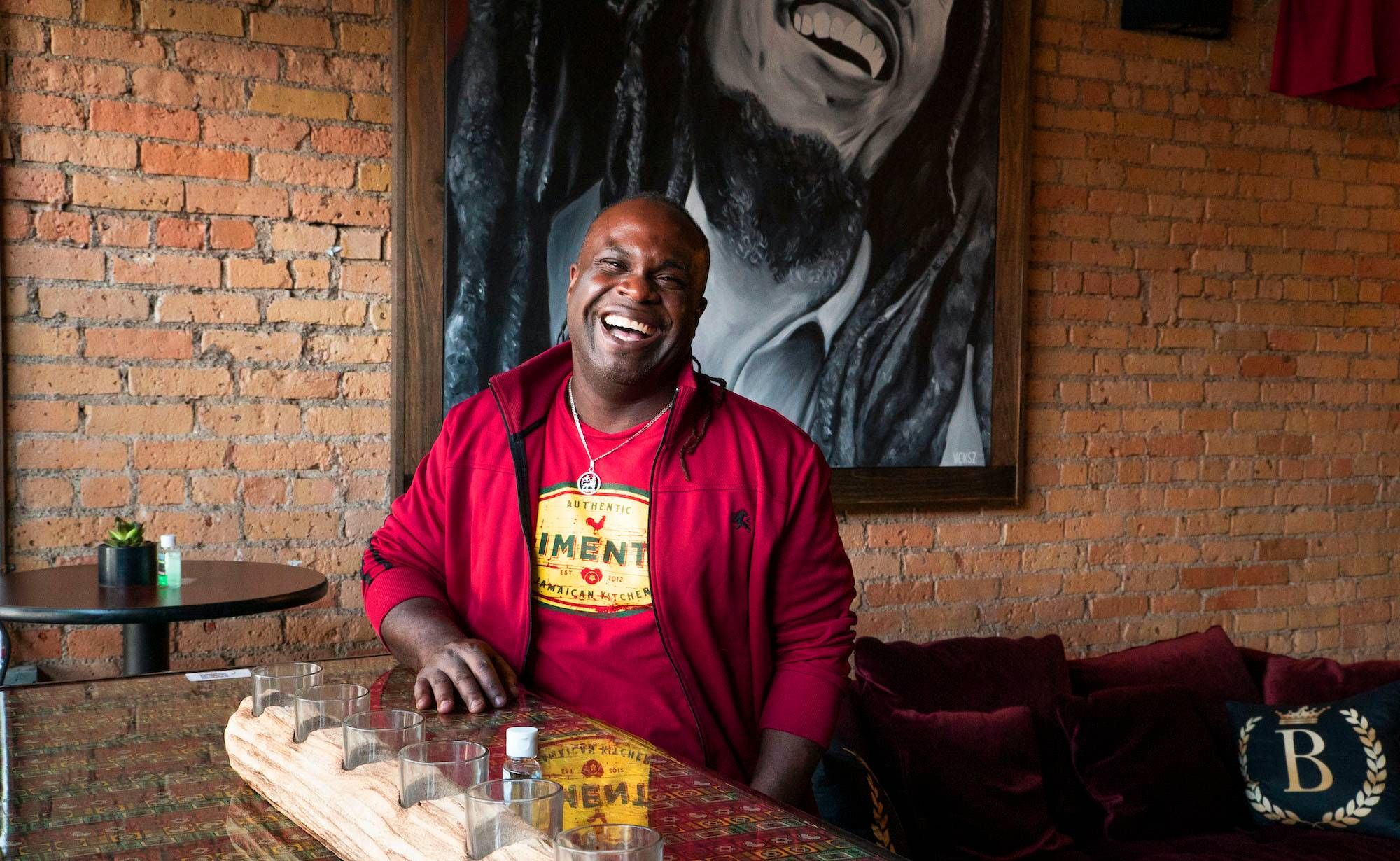
PRS is not just focused on making sure community members have food security; rather, the nonprofit has also launched a number of initiatives focused on health and wellness, political activism, and economic and financial liberation.
Last June, many in the community needed a moment of reprieve, so PRS held a day of healing. On June 5 of this year, Beevas and PRS plan to do it again. They will have healers, yoga and a vaccine bus.
PRS is trying to address a widespread lack of access to capital through its economic liberation council which is working on creating Black business grants, supporting the Black banking system and increasing financial literacy.
"Economic liberation is achieved when a Black business can fail and it's not breaking news," Beevas says. "In Minnesota we try to do Black exceptionalism, and yet, I'm from a land where Black exceptionalism is everybody.
"Now what I'm loving, is that Black people are finally free to come into their own greatness and to build something like what we're building here at Pimento, for our community."
Seeding change with the Green Garden Bakery
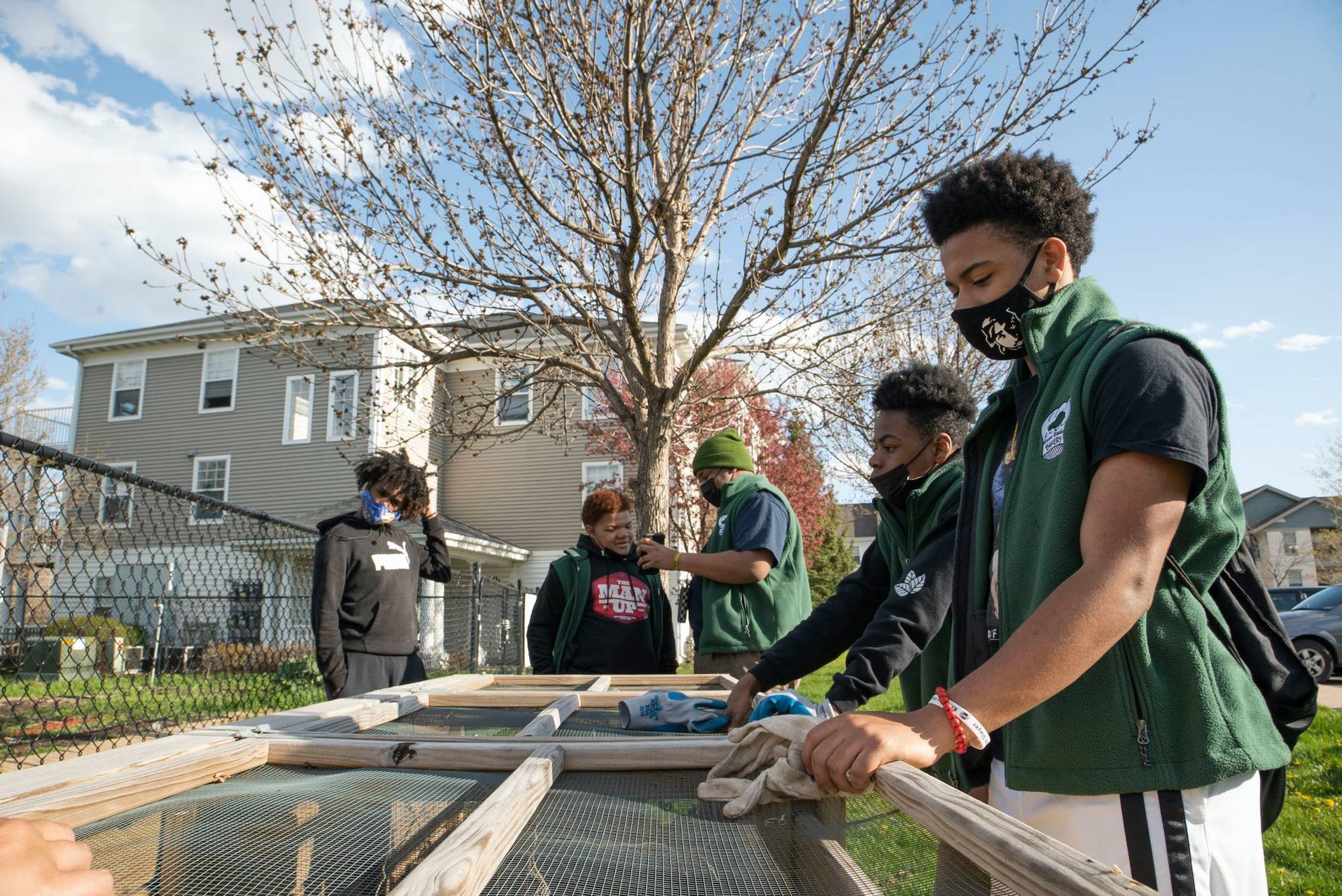
On a Thursday evening, just a little less than three miles north in the Sumner-Glenwood neighborhood, members of the Green Garden Bakery pull old roots from the soil of their community garden containers. With gardening gloves, rakes and a few shovels, the group makes room for the flowers and herbs that will decorate and flavor their desserts.
The Green Garden Bakery (GGB) is a youth-run, community-focused enterprise — employees are 12 to 18 years old. The money that the organization makes gets split up into three buckets: One-third of the money pays the workers; one-third gets reinvested into the community; and the last third goes to a charity of the group's choice.
D'Loveante Allen joined GGB when he was 12, painting the compostable boxes that package the baked goods. At 17, he's now thinking about where he wants to go to school and dreaming about different career aspirations. Given his experience with GGB, he's currently set on sales.
"We had a pop-up sale at Fig and Farro... and that was my very first sale, and I liked it a lot, and I was good at it," says Allen, a sales lead for GGB's Junior Executive team. "I love what I'm doing, and this is a great experience really early in my life."
Allen says that GGB helped him break out of his shell: The more he was able to talk to people through sales, the more confidence he gained.
"Now I love engaging with people," he explains.
GGB allows Allen and the other youth employees to see their friends, catch up and build stronger relationships — an experience that has proved especially important over the last year.
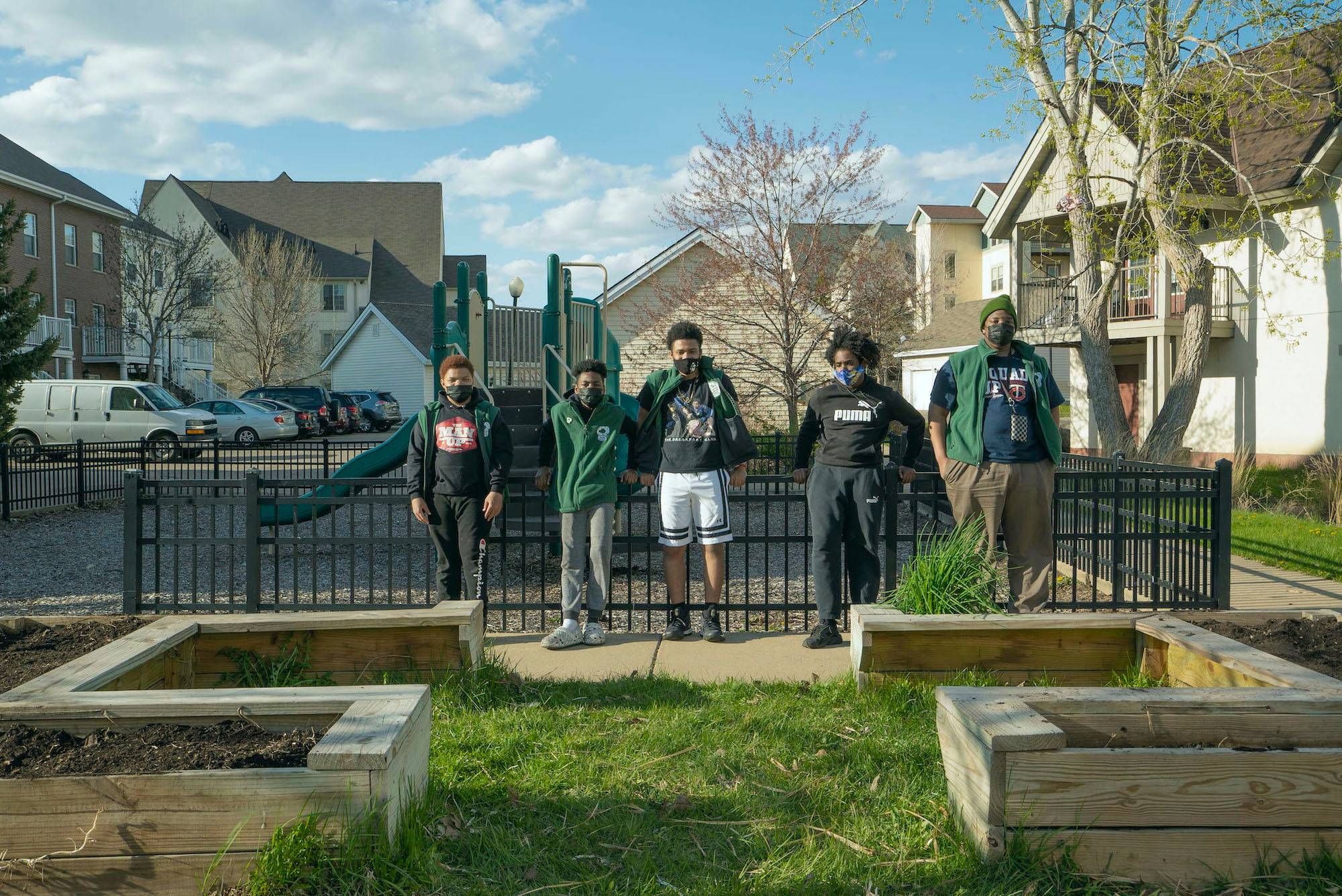
T.J. Grady, 12, says that GGB has given him a positive reason to get out of the house during the pandemic.
Both Grady and Allen have experienced many different emotions over the last year, and even though the verdict in the Chauvin trial brought a moment of justice, Allen explains, the next moment was one of pain sparked by the police killing of Daunte Wright. While neither of their parents wanted them to attend the protests, both Grady and Allen have watched people take to the streets.
"I don't know how to put the word 'powerful' into a feeling, but [it's felt] sad and powerful seeing everyone come together, but for sad reasons," Allen says.
"Because somebody died," Grady adds.
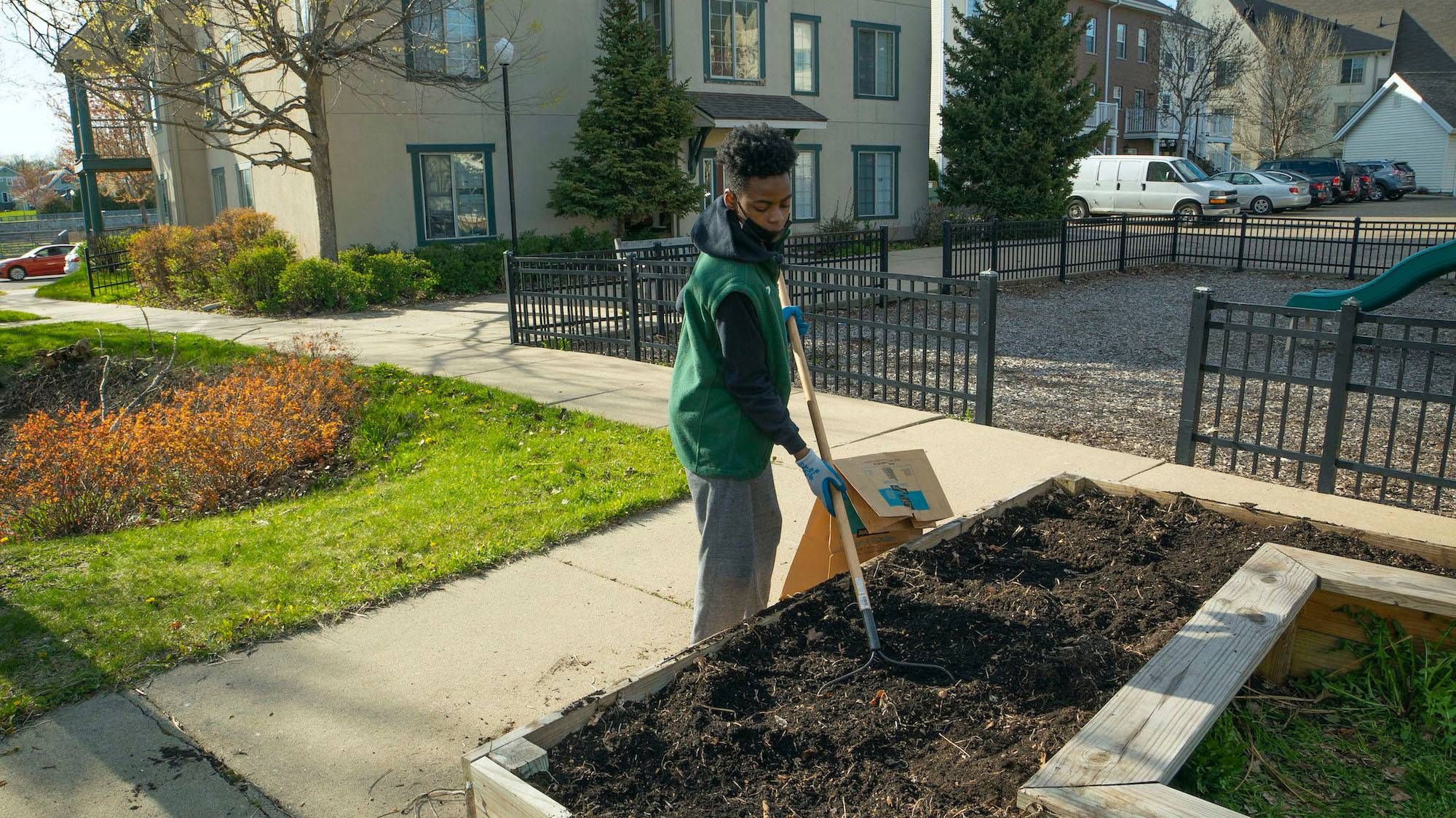
GGB not only makes room for young people to have their thoughts and voices heard in the business, but it also provides nourishment for the community. In August 2020, GGB created the Community Crew in response to the pandemic. The Community Crew uses revenue from the bakery and donations to operate food pantries and to deliver supplies to those who need it.
"That's one of the highlights, is when I do something, I can see the result of it. So let's say I give food to someone, I see that right then they're happy, they're eating," Allen says.
In 2020, GGB halted in-person sales at the Minneapolis Farmers Markets, switching to online ordering only. But this year, they can be found selling paint-splattered compostable boxes filled with veggie-packed desserts at the Midtown Farmers Market on Saturdays.
As the anniversary of George Floyd's murder approaches, both Pimento Jamaican Kitchen and the Green Garden Bakery continue to harness the unique power of food to unify and sustain an ongoing path to justice.
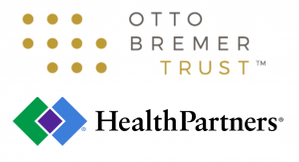
This story is part of the digital storytelling project Racism Unveiled, which is funded by grants from the Otto Bremer Trust and HealthPartners.
Triggered by the murder of George Floyd, many Black children have felt the acute sting of racialized trauma as severely as their parents. In a bonus episode of Trial & Tribulation: Racism and Justice in Minnesota, child psychologist Dr. BraVada Garrett-Akinsanya offers five ways that parents can help their children cope with with emotions.
Hunger takes many forms in Minnesota: Parents skip meals so their children can eat, they water down milk so there's enough to go around or they make soup out of ketchup packets. But when it comes to how we talk about the lack of steady access to fresh, healthy foods, buzz words abound – food deserts, food swamps, food access. So what does the term "food insecurity" mean in Minnesota?
Wondering what kind of good work is unfolding to tackle food justice across the country? Check out the efforts led by these three change-makers who seek out ways to promote ancestral connection and spirituality through agricultural projects.
